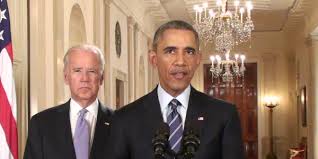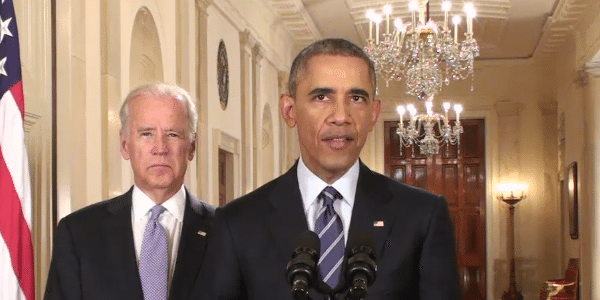When President Obama earlier stated that “nothing is agreed upon until everything is agreed upon”, no one really understood where the President was going in terms of the negotiations concerning raising the debt ceiling. Later when he put forth his plan for a massive $4 trillion dollars in spending cuts – if Republicans agreed to ending the tax loopholes for the wealthy – the connection between his statement and his plan still wasn’t realized.
However, when the Republican Senate minority leader Mitch McConnell yesterday told the press, that he is willing to “authorize” the President to submit a request to congress to raise the debt ceiling, a light bulb went off in the Host of MSNBC’s The Last Word – Lawrence O’ Donnell‘s head. The President’s statement on a $4 trillion spending cut proposal finally began making sense.
The way O’Donnell explains the connection is like this: President Obama is winning the debt ceiling argument with Republicans. By making the statement, “nothing is agreed upon until everything is agreed upon,” the President put Republicans on notice, that to have a deal, both parties would have to agree to major sacrifices. He then announced a huge spending cut proposal, with the knowledge that Republicans were too much against imposing any taxes or ending the loopholes on the wealthy. With this in mind, the President essentially called the Republican’s bluff. If they were really serious about deficit reduction, they would have jumped on the opportunity to cut spending by ending the tax loopholes.
Then yesterday, Mitch McConnell came out and basically handed the President the win. What Mitch wants is a resolution to allow the President to raise the debt ceiling all by himself. The President would request congress to raise the debt ceiling. Congress would then vote to “disapprove” the request, which the President would then veto. With that veto, the debt ceiling would automatically be raised on the President’s terms.
This move by McConnell, basically giving up the fight and allowing President Obama to make the decision, brought it all home for Lawrence.
Of course, we are talking about Mitch McConnell – the same Republican who said his primary goal is to see Obama fail. It is therefore wise to look at this “plan” by McConnell from that perspective and realize the politics behind it. McConnell realizes that the Republicans have taken a dangerous position. Any default by the United States government by not raising the debt ceiling would be political assassination for the GOP. With this move, McConnell removes the Republicans from the decision-making process, that way, the President makes the decision and avoids America going into default. McConnell can tell his Teaparty constituents that he voted against raising the debt ceiling.
The punk’s way out if you ask me.










